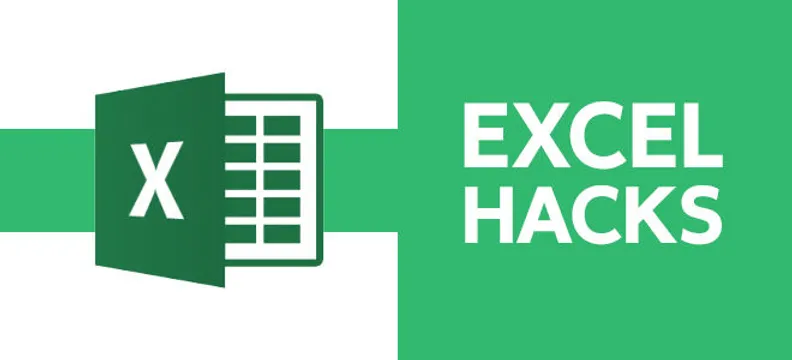If you’re like most finance professionals, you are accustomed to using Excel. It is a tool that has been around for decades due to its ability to manipulate, save, and present data well. As common as the use of this application is, not all finance professionals are maximizing the results of their Excel use.
Many are excessively reliant on certain functions, such as VLOOKUP, and neglect others, such as INDEX and MATCH, which are more versatile, and more appropriate for certain situations. Some are not aware of the best visualization options available.
Out of the numerous useful Excel skills, here are 6 of the most important competencies you should have as a finance professional using this powerful application.
6 Essential Excel Skills to Know
1. Proficiency in Excel Formulas and Functions:
Excel’s mathematical capabilities are what helped the program rise to prominence in the fields of accounting and finance. Thus, it is critical to step up your proficiency in the formulas and functions Excel has to offer. To elaborate on how you can improve, here are some examples:
I. INDEX and MATCH: These are also reference functions similar to VLOOKUP but more powerful and allow you to look up values in a table based off of other rows and columns. Unlike VLOOKUP, INDEX can be used on rows, columns, or both at the same time. INDEX and MATCH are used together to perform some really advanced lookups.
II. Formula builder: Since 2016, this has been an Excel tool that has made it easier to select and write the functions you need. go to the Formulas tab and click Insert Function. You’ll see a list of available functions with descriptions, which you can search for easily. You can also specify parts of the formula you are using by typing data directly into the boxes or clicking on the cells holding the data you want to use.
III. Finance Functions: You should learn to use inbuilt finance functions such as NPV, IRR, PV and other time value functions. An understanding of statistical and other excel functions is also helpful.
2. Knowledge of Proper Pivot Table Analysis:
Pivot tables and pivot charts allow accounting and finance professionals to gain meaningful insights from data. They can access multiple information sources and support a deep dive into the data. Being able to perform a pivot table analysis should be seen as an essential Excel skill for anyone working in a finance-oriented role.
3. Proficiency in Charts and Visualizations:
At times, trying to derive meaning from rows and columns full of numbers is a challenge, particularly if you are dealing with a substantial amount of data. Charts and visualizations help make the information more accessible by creating a graphical presentation of the data. This not only helps with analysis but also with showing the data to another party, especially those who may not be as familiar with financial concepts. Excel also has extensive chart editing capabilities; you can select predefined styles and layouts which are easy to change, or create new styles from scratch.
However, it is important to not get carried away with the complexity of chart designs. You can drive your point home a lot better by just keeping your charts simple.
4. Quality Use of Conditional Formatting:
With conditional formatting, you can adjust the look of particular cells based on whether they meet certain conditions, making it easier to track critical details or examine the spreadsheets for specific information. For example, outgoing payments (represented by negative amounts on a balance sheet) could be displayed in red, meaning the number is negative. Similarly, approaching due dates can be color-coded or bolded to draw attention to the cells.
5. Competency in Data Manipulation and Navigation:
Data manipulation is key to presenting financial reports of models. When you use data manipulation, you can insert or delete rows or columns and hide and unhide data, which gives you the ability to simplify reports and cut to the bottom line. It is also important to learn the shortcuts that provide an accessible path for navigating the pages of the report. Data manipulation and navigation are tools that help both accounting personnel and management access information.
While some pundits say that thinking and planning is the most important aspect of success, there are some necessary basic Excel skills that will help you create accessible, clear, concise reports. Master general and number formatting, understand lookup functions such as VLOOKUP, and learn the ropes of data manipulation and navigation.
6. Proficiency in Data Connection Across formats:
The data you collect will not all be saved in a single format, you need to be able to combine data from other applications and formats, such as PDF files, Microsoft Word, etc. This can be done via embedding or converting. It’s important to note the possibility of embedding Word documents into Excel worksheets, as this can prove to be very useful when adding information that can’t be displayed in regular worksheet format.
An Essential Skill Besides Excel Savviness
Although Excel itself is a great tool for any finance professional, which provides an even greater advantage when the users know how to use Excel well, FP&A professionals should also be proficient in the use of other resources, among these being FP&A software. Financial software systems provide automation, different analyses of collected data, and higher grade security, hence solving issues of potential fraud, human error, and data accuracy. The benefits of financial software systems include automation, different analyses of collected data, and higher grade network security. Any finance team skilled in Excel can benefit from using FP&A software in tandem with spreadsheets, particularly if that software is directly intended to complement Excel use.
FAQ:
1. What are Excel Modeling Skills?
Excel modeling is the art of creating a dynamic tool (in this case, an excel model) that can be used to evaluate investment opportunities, mergers & acquisitions (M&A), capital raising, or to assess a company’s historical or forecasted financial performance.
2. What are the most important Excel functions for finance?
- Strong Excel skills
- Attention to detail
- Clear presentation skills
- A solid understanding of accounting
- Knowing how to link the 3 financial statements
- Understanding how to build a forecast
- A logical framework for problem-solving
- Ability to distill large amounts of data into a simple format
- An eye for design and esthetics
- The ability to easily zoom in on details, and zoom out to high-level strategy





